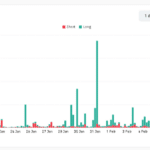(The Wall Shill Journal Editorial Page goes beyond stupid....- AM)
So much for being a good corporate citizen. Bank of America CEO Ken Lewis earned kudos last year for stepping into the breach when the mortgage market and Wall Street cratered. BofA's purchase of Countrywide Financial (paying top-of-the market prices for an insolvent franchise) and its September agreement to buy Merrill Lynch (again grossly overpaying, which was recognized and criticized by most astute observers, for the insolvent blundering herd) offered a welcome dose of optimism and private capital amid the panic. (It did not engender optimism, it engendered incredulity and was in hindsight nothing more than an example of moral hazard redux.)
In December, Mr. Lewis realized that he had been too optimistic.(Uh is that the description nowadays for an abysmal lack of due diligence and/or grossly misrepresenting to stockholders' true asset values?) And when he considered breaking off the Merrill engagement, Washington arranged a shotgun wedding. After BofA shareholders approved the Merrill purchase on December 5, Mr. Lewis saw Merrill's assets plunge in value (That is blatantly ridiculous, the shareholder meeting was top of December, Lewis's realization was mid- December?, the markets were calm in December and in fact improving. This deceit is necessary for Lewis's proclamations at the meeting were frankly either criminally stupid or stupidly criminal ... pick your poison.) and began to explore a way out. At least he wanted a better price given the erosion in Merrill's real estate and corporate portfolio.(Retrade or die was obvious to even the casual observer, but of course a third option presented itself... run to the Federales like a nancy capitalist and revise the facts to fit the argument.)
Mr. Lewis's effort to protect his common shareholders was vetoed by his most important shareholder, the feds.(No action taken by Lewis in anyway would appear to be an effort to 'protect his common shareholders'. This assertion is so blatantly stupid it beggars the imagination.) In October the U.S. Treasury had insisted on investing $15 billion in his bank. Come December, Treasury Secretary Hank Paulson and Fed Chairman Ben Bernanke told him that Merrill had to be saved, and that BofA had to be the savior. Mr. Lewis said yesterday that the government was "firmly of the view" that canceling or delaying the Merrill deal might result in "serious systemic harm."
In other words, the feds believe that the way to calm financial markets is to force the nation's largest, and a heretofore healthy,(Healthy, after Countrywide? Say again?) bank to swallow toxic assets it didn't want.(If it didn't want them, why did they buy them?) In return, yesterday the Treasury agreed to invest $20 billion in BofA, for which the government will receive preferred shares paying 8%. Treasury, the FDIC and the Fed will also partially insure $118 billion in troubled assets -- mostly Merrill's. In return for this downside protection, BofA will have to render unto Caesar another $4 billion of preferred stock plus warrants.
These preferreds will also pay 8%, but private shareholders are not so fortunate. The agreement limits quarterly common stock dividends to a penny a share. The Charlotte bank will also have to accept new executive compensation limits. And the bank will need to submit for government approval a plan to modify troubled mortgages.
Mr. Lewis doesn't seem thrilled that the government has a larger piece of his business. When asked yesterday when the bank might escape federal ownership, he replied, "I wish I knew," and then added, "clearly as soon as possible." (You are insolvent Mr. Lewis due to the idiocy of your actions. Hoping for the best is not an investment strategy.) Bank of America investors, who've taken a beating since the Journal reported on Merrill's latest troubles and the government "rescue," would surely agree. BofA shares fell 14% yesterday. If the feds really want to attract private capital to the banking system, this isn't the way to do it.(Dear editorial staff of the Wall Shill Journal, you have not once offered any credible suggestion as to what would attract private capital... namely the application of that silly little concept called 'price discovery'. Truly the discouraging word of nancy capitalists.)
Monday, January 19, 2009
Subscribe to:
Post Comments (Atom)




No comments:
Post a Comment